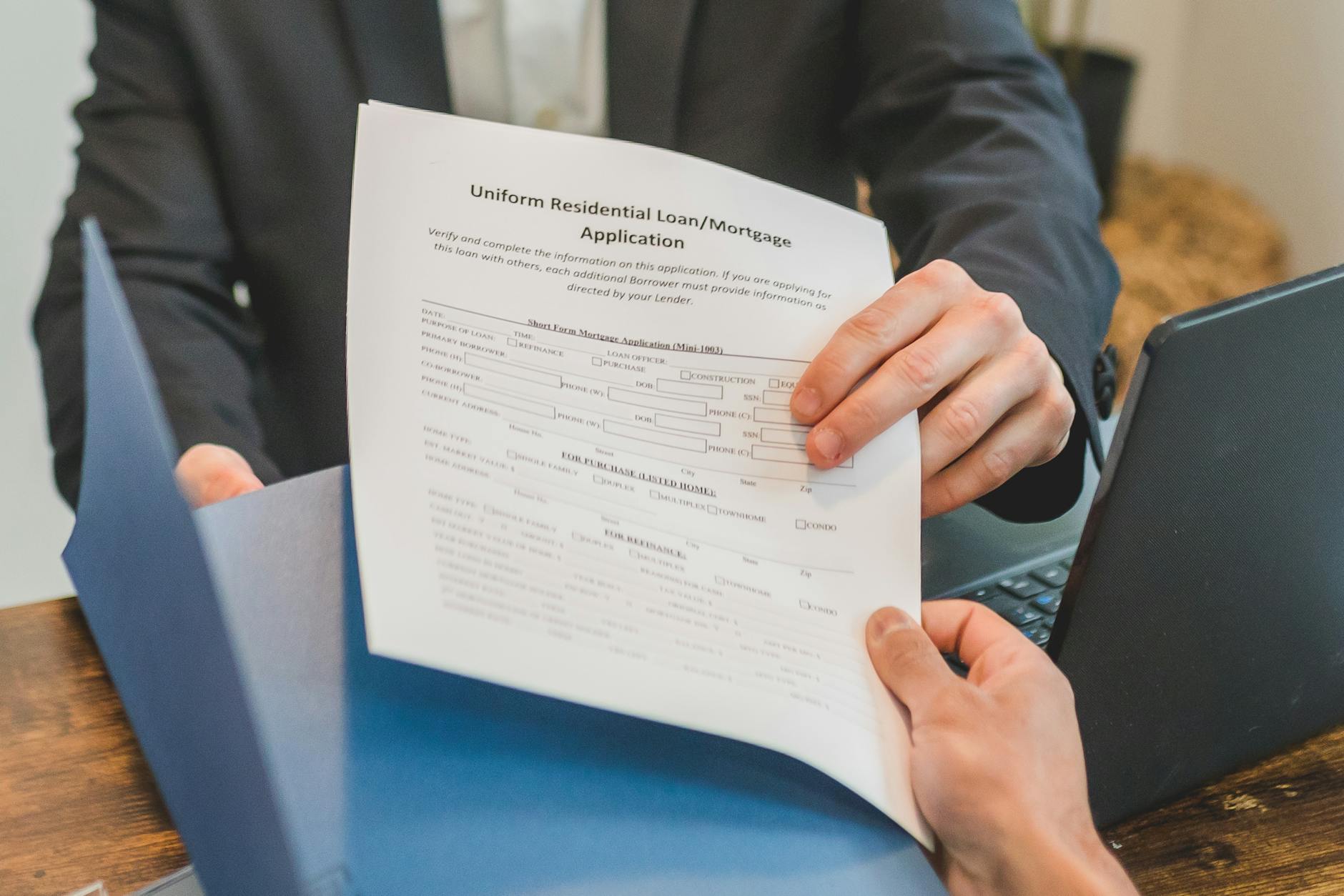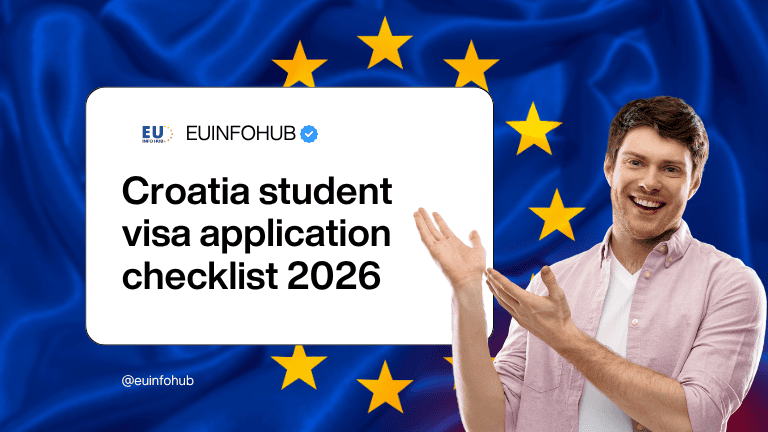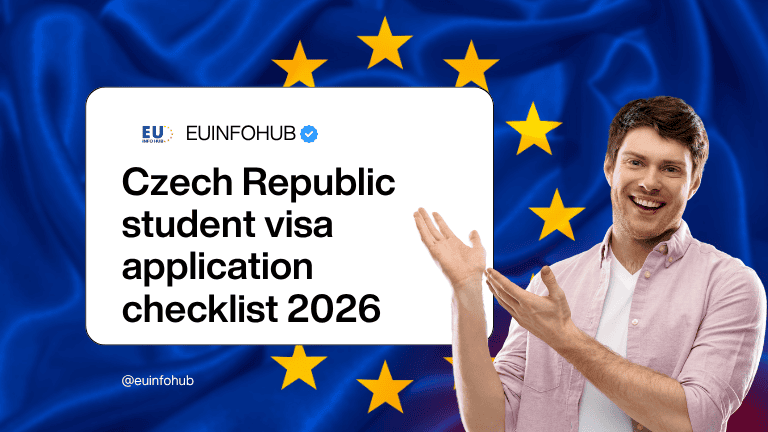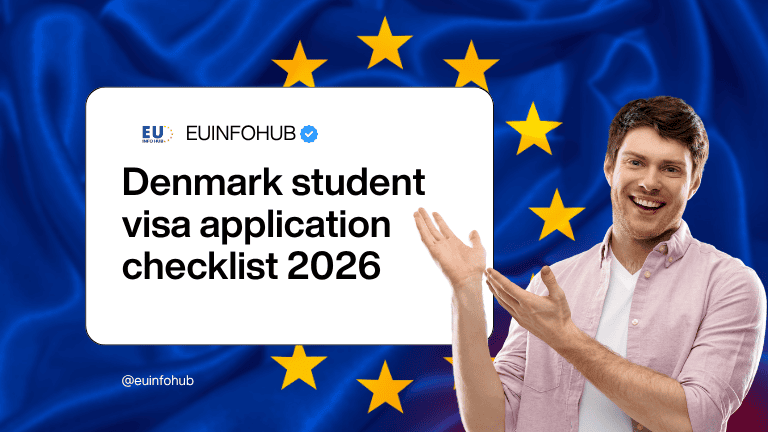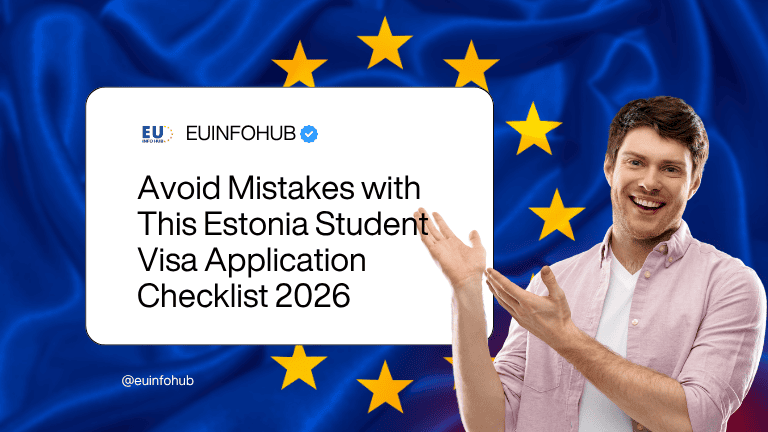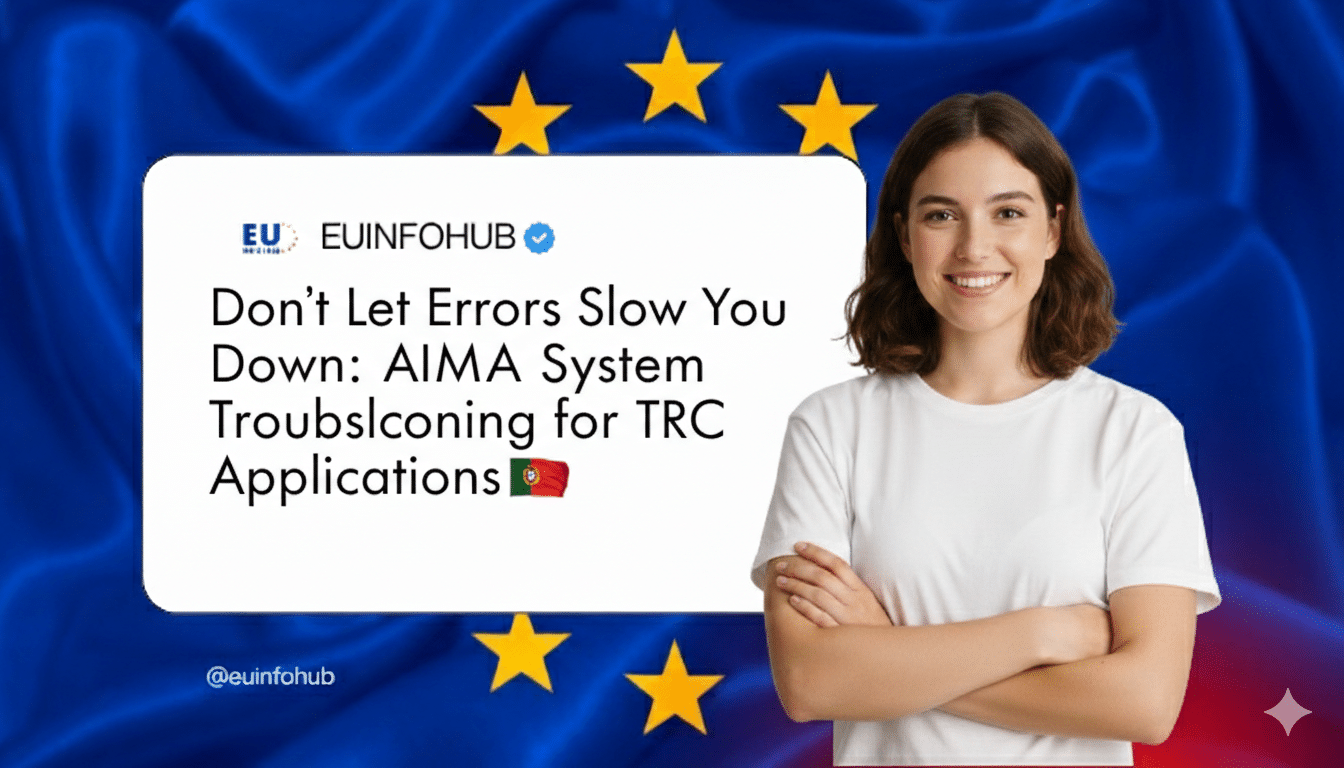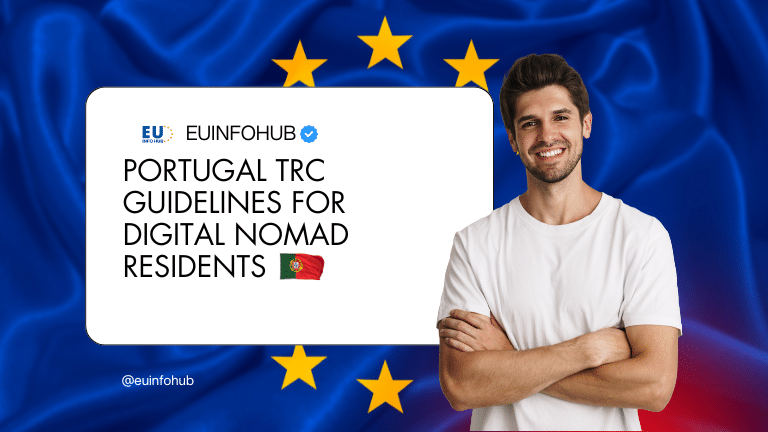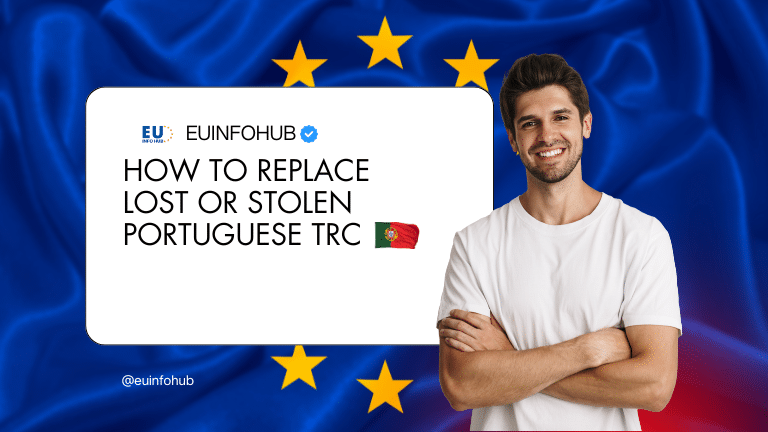Ever felt overwhelmed by visa paperwork? Getting your study plans on track shouldn’t add extra stress. In this Bulgaria student visa application checklist 2026, you’ll find clear steps and necessary documents. You’ll know exactly what to prepare, where to apply, and how to avoid common hiccups. If you want a broader look at student permits in Europe, check our student permits overview. Ready to dive in? Let’s go.
Plan your timeline
Plan your timeline with program dates and visa requirements in mind. Start early to avoid last-minute stress. If you want more detail on applying for a European study permit, see our step by step guide for student permit.
Understand visa types
Choosing the right visa can feel tricky. Bulgaria offers two main categories for international students. Type C covers short stays, up to 90 days in any 180-day period. For degree programs, you need a long-stay Type D visa that lets you study beyond 90 days. Both visas fall under the EU common visa policy since 2007 (Ministry of Foreign Affairs of Bulgaria). Use the table below to compare.
| Visa type | Maximum stay | Purpose |
|---|---|---|
| Type C | 90 days in any 180-day period | Short courses or orientation |
| Type D | Over 90 days | Full degree or long-term study |
Source: Leverage Edu
Check program deadlines
Every school sets its own application dates. Most universities have deadlines in spring for fall intake. Your acceptance letter usually arrives 4 to 12 weeks before courses start. You’ll need that letter to apply for your visa.
Plan visa submission
Plan to file your visa application at least 90 days before departure. Long-stay visas can take up to 60 days to process (Insurte). Book your embassy appointment early. Also check if your consulate accepts online or in-person submissions.
Align travel plans
Once you have your appointment date, plan your flight and arrival. Don’t buy nonrefundable tickets until your visa is in hand. Make sure your passport is valid for at least three months after you leave the Schengen zone.
Check your eligibility
You need three core eligibility checks before your embassy visit. Make sure you have admission proof, language test results, and sufficient funds.
Admission to a program
A confirmed acceptance letter from a recognized Bulgarian institution is mandatory. Your letter must state your full name, program title, and start and end dates. Keep the original and copies handy for both your visa and residence permit.
Educations.com notes that holding onto your confirmation letter streamlines the process (educations.com).
Language requirements
Many programs in Bulgaria use English or Bulgarian. Check if your course requires IELTS, TOEFL, or a Bulgarian exam certificate. Attach your test results and any certified translations to your application.
Financial criteria
You must prove you can support yourself financially. This usually means a minimum bank balance or scholarship documentation. As a guideline, plan on covering at least 400 BGN per month for living costs. If you have a sponsor, include their signed letter and bank statements.
Typical financial documents:
- Personal bank statements showing sufficient funds
- Scholarship award letter, if applicable
- Sponsor letter with supporting bank records
Source: Leverage Edu
Gather supporting documents
Before you head to the embassy, double-check your paperwork. Below are the must-have items for a smooth submission.
Visa application form
Download and print the official visa form from your embassy website. Fill it out neatly with black ink, and sign where indicated. Missing or messy forms can delay your process.
Valid passport
Your passport must be valid for at least six months beyond your planned travel date. It also needs at least two blank pages for the visa sticker. Include photocopies of the data page and any previous Bulgarian visas.
Passport photos
Attach two identical, recent passport-size photos. They must meet EU visa photo rules: white background, inside the last three months, size 3.5 x 4.5 cm.
Admission letter and transcripts
Provide the original letter of acceptance from your university. Pack your official transcripts or mark sheets as well. These must be translated into Bulgarian or English and notarized.
Financial proof
Show you can cover tuition and living costs. Include bank statements, scholarship letters, or financial guarantees. Translate any documents not issued in English or Bulgarian.
Accommodation proof
Include a rental agreement, dormitory confirmation, or a host invitation letter. Your Bulgarian address must be clear and complete.
Health insurance certificate
Non-EU/EEA students must have private health and assistance insurance. The policy must cover emergency medical costs worldwide, except USA/Canada. It also needs a Bulgarian translation (Swisscare).
Additional supporting letters
Depending on your program, you may need extra documents.
Postgraduate cv and recommendation
- An up-to-date CV outlining your academic history
- One or two recommendation letters for postgraduate or doctoral programs (educations.com)
Language exam certificate
- Proof of Bulgarian or English proficiency as required by your course
Secure health insurance
Health coverage is non-negotiable for your visa file.
Requirements for non-EU students
Non-EU/EEA students must secure private health and assistance insurance for the full duration of their stay. The policy needs to cover emergency medical expenses in Bulgaria and worldwide (Swisscare). EU/EEA students should bring an EHIC card and supplementary travel insurance.
Policy details
Make sure your plan includes:
- At least 30,000 EUR for medical emergencies
- Emergency repatriation coverage
- 24/7 assistance services
Request a letter from your insurer that lists these benefits. That letter goes into your visa application.
Translation and certification
Any insurance document not in Bulgarian requires a certified translation. Ask your insurer for an approved translator if needed.
Review visa fees
Knowing the cost helps you budget before you apply.
Short-stay fee
The standard fee for a short-stay Schengen visa is around 90 EUR. This covers Type C visas.
Long-stay fee
Long-stay student visas often cost more, typically between 100 EUR and 180 EUR. Fees vary by country and may change annually.
Payment methods
Most embassies accept cash, credit card, or bank transfer. The fee is non-refundable even if your visa is refused (Insurte). Keep your payment receipt for embassy records.
Prepare for interview
Your visa interview is your chance to make a solid impression.
Common consular questions
Consular officers often ask about your study goals, choice of Bulgaria, and financial plans. Prepare short, honest answers. Practice explaining your program in one or two sentences.
Documents to carry on interview day
On top of your folder, carry:
- Your passport
- Appointment confirmation
- A pen and notebook for notes
Professional appearance
Wear smart casual attire. First impressions matter in a formal setting.
Budget your stay
Budgeting ahead keeps surprises at bay.
Cost of living in Bulgaria
On average, students spend 450 to 600 EUR per month covering rent, food, and transport. Sofia tends to be more expensive than smaller cities like Plovdiv or Varna.
Tuition and fees
Tuition varies by program. Public universities may charge between 1,000 and 5,000 EUR per year for EU and non-EU students. Private institutions may cost more.
Budget template
Use a simple monthly template:
- Rent: _ EUR
- Utilities: _ EUR
- Food: _ EUR
- Transport: _ EUR
- Miscellaneous: _ EUR
Review your spending regularly to stay on track.
Apply at your embassy
Your next step is handing in the documents.
Find your nearest consulate
Locate the Bulgarian embassy or visa application center in your country. Check its website for operating hours and specific requirements.
Book your appointment
Most embassies use online booking portals. Secure your slot as soon as possible since peak season fills up quickly. You may need to pay the visa fee at booking or on submission. Short-stay visa fees are around 90 EUR, while long-stay fees vary (Insurte).
Pre-interview checklist
Prepare an organized folder with:
- Original documents and copies
- Certified translations
- Proof of fee payment
- Printed appointment confirmation
Having everything in one place makes the process smoother.
Embassy submission process
Arrive early, dress neatly, and have your documents arranged. The consular officer will review your file, take your fingerprints, and may ask questions about your study plans. Answer clearly and confidently.
Track your application
After submission, the waiting game begins.
Processing times
Short-stay visas often take 15 to 45 days. Long-stay student visas can take 30 to 60 days (Leverage Edu, Insurte). Use these ranges to set realistic expectations.
Checking status online
Many embassies let you track your visa by reference number. Save your receipt and check for updates every few days. If you see no change after the maximum processing time, email the consulate politely.
Handling delays
Occasional delays happen due to backlogs or extra document requests. If the embassy asks for more paperwork, submit it ASAP to avoid further waiting.
What to do if visa is refused
A refusal can be tough, but you can appeal. You have one month to contest the decision at the Bulgarian Ministry of Foreign Affairs (Ministry of Foreign Affairs of Bulgaria). Review the refusal letter and address its reasons in your appeal.
Finalize your residence permit
After you arrive in Bulgaria, apply for your permit within 90 days.
Apply for the permit
Visit the Migration Directorate to submit:
- Passport and visa copies
- Completed residence form
- Proof of address in Bulgaria
- Health insurance certificate
- Letter of acceptance and any other required papers (EU Immigration Portal)
Permit validity and renewals
Your permit matches your study program’s length and is issued for up to one year. You can renew it annually until graduation. Remember, it expires once your studies finish.
Register local address
You must register your Bulgarian address at the municipality within a month of arrival. Bring your lease agreement and passport copy. This links your residency to national records.
Open a bank account
With your permit, you can open a local bank account for tuition payments and daily expenses. Choose a bank with English support and low fees. You’ll need your permit, passport, and proof of address.
Get a student id
Most universities issue a student card (EDU card). This card offers discounts on transport and campus events. Apply at your student services office within your first month.
Benefits of the permit
With a valid residence permit, you can:
- Travel freely within the Schengen zone for 90 days in any 180-day period
- Sign a longer-term lease without extra deposits
- Access student discounts and local services
Work while studying
Working part-time can ease your budget.
Part-time work rules
Non-EU students can work up to 20 hours per week during term time. There’s no limit during official breaks.
Required work permit
You need to apply for a work permit at the local labor office. Your employer usually handles the paperwork. You must hold a valid residence permit.
Balancing work and study
Keep work hours manageable so your grades don’t suffer. Use a weekly planner to schedule classes and shifts.
Plan post-study options
Think ahead to your next steps after graduation.
Work permit after study
Within nine months of graduation, apply for a work permit under the same rules as other non-EU citizens. Register with the Employment Agency within seven business days of your permit approval (EU Immigration Portal).
Employer sponsorship
Many employers sponsor graduate permits. Show them your valid degree and any Bulgarian work experience you’ve gained. Networking at university events can help.
Path to permanent residence
After five years of legal residence, you may be eligible for a long-term EU resident permit. Check requirements on the Migration Directorate’s website.
Prepare for departure
These last-minute tasks set you up for success.
Book accommodation
Reserve housing before arriving. Short-term stays in hostels or Airbnb can cover your first month. University dorms fill up fast, so apply early.
Arrange transportation
Get a mobile SIM card for Europe or an international plan. Download apps like Moovit for public transport schedules.
Pack essentials
Pack European outlet adapters, a basic first aid kit, and copies of your important documents. Keep originals in your carry-on.
Financial prep
Notify your home bank you’ll be abroad to avoid blocked cards. Consider a student travel card with no foreign transaction fees.
Ensure health and safety
Staying safe helps you focus on your studies.
Local healthcare access
Show your health insurance card at clinics. EU nationals can use their EHIC. Non-EU students must pay up front and claim reimbursement later.
Emergency contacts
Save these numbers: 112 for general emergencies, 150 for police, 160 for ambulance, 166 for fire.
Personal safety tips
Bulgaria is generally safe, but take normal precautions at night. Secure your bicycle with a strong lock and keep valuables stored securely.
Adapt to Bulgarian culture
Embracing local life makes your stay richer.
Language and customs
Learn basic Bulgarian greetings and customs. Locals appreciate the effort when you use simple phrases.
Student life tips
Try regional dishes like banitsa or shopska salad. Join clubs or language tandems to practice and make friends.
Public holidays
Be aware of Orthodox Christian holidays such as Easter and Christmas. University schedules may close during those periods.
Plan your transport
Getting around is part of the adventure.
Local transit options
Buses, trams, and the Sofia metro cover major cities. Monthly student passes cost around 35 BGN. Outside Sofia, intercity buses link towns efficiently.
Intercity travel
Book trains or long-distance buses early for discounts. FlixBus and Bulgarian Railways offer online booking portals.
Travel within Schengen
With your visa, you can visit neighboring EU countries by train or bus. Check visa rules for each border crossing before you go.
Manage your finances
Smart money habits reduce stress abroad.
Banking fees
Look for student accounts with no monthly fee. Review ATM withdrawal charges and branch locations near campus.
Money transfers
Use low-fee services like Wise or Revolut to send money abroad. Traditional banks often charge high commissions.
Budgeting tools
Install apps like Goodbudget or Wallet to monitor your spending. Set weekly categories for food, transport, and leisure.
Access student support
Help is available on and off campus.
University services
International offices assist with visa, housing, and language questions. Find their contact details before you arrive.
Student communities
Join Facebook groups or forums for tips on living in Bulgaria. Peer advice can be invaluable.
Language courses
Many schools offer free or low-cost Bulgarian classes for students. Check if your program includes them.
Plan for emergencies
A little prep goes a long way.
Health emergencies
Know the nearest hospital to your accommodation. Keep a copy of your insurance details and insurer hotline number.
Travel disruptions
Monitor weather and transport news before important trips. Build in extra time for appointments.
Document safety
Scan and email yourself copies of your passport, visa, and acceptance letter. Store them in a secure cloud folder.
Avoid application mistakes
Dodge these common hurdles. For a more detailed list, see our common mistakes on student visa applications.
Missing documents
One missing document can stall your entire application. Use the checklist above to tick off each required item.
Incomplete forms
Errors on your application form often lead to rejection. Double-check every field, signature, and date.
Insufficient financial proof
Underestimating living costs can lead to refusal. Confirm the exact financial requirements with your consulate.
Late submissions
Don’t wait until the last moment. A missed appointment can delay your entire study plan.
Key takeaways recap
- Start planning at least 120 days before your program begins
- Confirm you need a Type D student visa, not a short-stay permit
- Gather and translate all required documents, including insurance
- Book your embassy appointment early and prepare for fingerprinting
- Track your application online and respond quickly to requests
- Apply for your residence permit within 90 days of arrival
- Avoid missing paperwork or late submissions to keep your timeline on track
For more checklists covering other European destinations, see our student visa application checklist.

